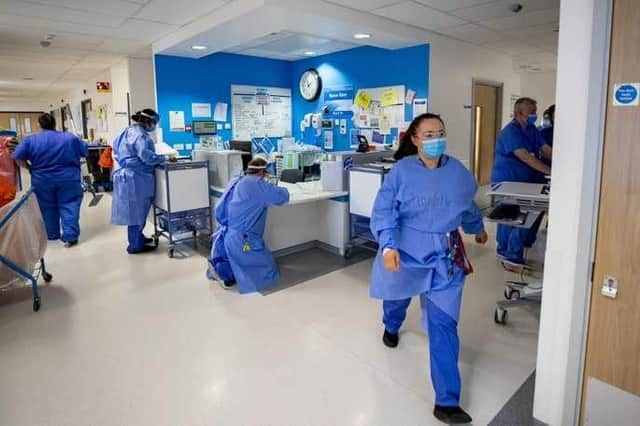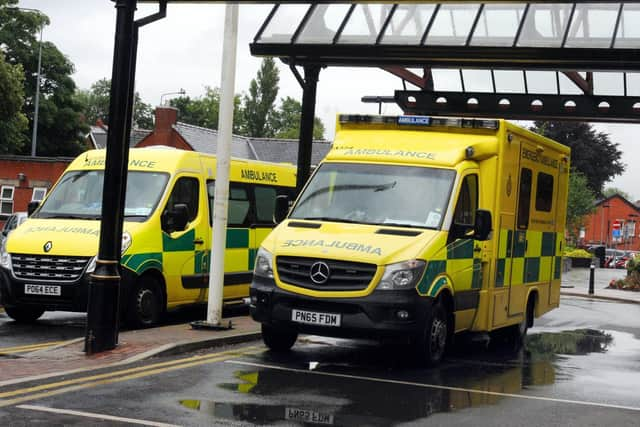Frustration at Wigan patients stuck in hospital when fit for release


Charity the Health Foundation said hospital discharge delays impact the entire health and social care system, while reducing the NHS’s capacity to tackle the huge backlog caused by the pandemic.
Patients should leave hospital on the same day they are assessed as fit for discharge, NHS guidance states.
Advertisement
Hide AdAdvertisement
Hide AdNHS England data shows 33 patients at Wrightington, Wigan and Leigh NHS Foundation Trust (WWL) were eligible for discharge on December 12 – the latest available data. However, none left hospital that day, meaning all those patients continued to occupy a bed.


The figures include seven patients deemed fit to leave who had been in hospital for at least three weeks on December 12 – none of whom were discharged that day.
The number of people remaining in WWL hospital beds was lower than on the same day the previous week, when 42 patients failed to be discharged.
WWL deputy chief executive Mary Fleming said: “It’s vitally important and in the best interest of the patient that they leave hospital when a clinician has decided that they are medically fit for discharge.
Advertisement
Hide AdAdvertisement
Hide Ad“In order to ensure this is done safely, partners across health and social care are working incredibly hard supporting patients to leave hospital as quickly as possible.”
Across England, around 11,000 patients – 69 per cent of those ready for discharge on December 12 – continued to occupy a hospital bed.
The data covers adult patients staying in acute trusts with a major A&E department, including those being treated for Covid-19, but excludes maternity patients and children.
Patients eligible for discharge on any one day may have been assessed at an earlier date.
Advertisement
Hide AdAdvertisement
Hide AdTim Gardner, senior policy fellow at the Health Foundation, said issues stem from a lack of suitable capacity outside acute hospitals.
He said: “Problems with discharges often lead to problems admitting patients to wards from A&E departments, which in turn causes delays in ambulance handovers and can affect the ability of the ambulance service to respond to new emergencies.
“Patients who no longer require acute care may still need a combination of social care or non-acute NHS care in the community, but a lack of support following discharge means too many remain in hospital for longer than necessary.
“Reducing these longer stays would help to alleviate pressures on hospitals, creating capacity that could be better used to address the backlog of care built up during the pandemic.
Advertisement
Hide AdAdvertisement
Hide AdHe added staff shortages were also playing a part and a system overhaul was required to address the problems.
Prof Stephen Powis, NHS national medical director, said staff are going “above and beyond”, looking after thousands of Covid patients, while also delivering hundreds of thousands of coronavirus jabs. He added: “No one wants to spend more time in hospital than needed, and local NHS services are continuing to work closely with social care providers so patients can be discharged when they’re fit to leave.”
Thanks for reading. If you value what we do and are able to support us, a digital subscription is just £1 for your first month. Try us today by clicking here and viewing our offers.
